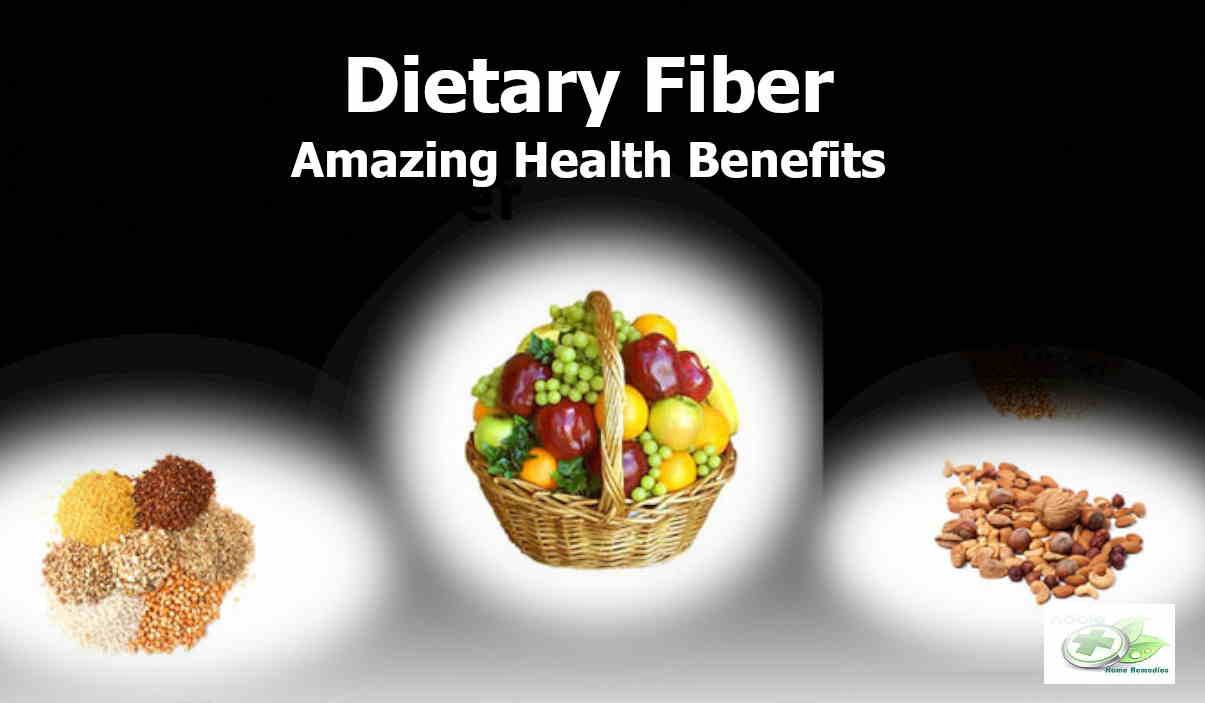Several articles have been published on the importance of consuming a high amount of dietary fiber. People are wondering how it affects their health and what ailments it can prevent or cure. We go over dietary fiber for digestive health as well as its effects on overall health.
Here is the expert opinion on the American population, and most of the rest of the world. Experts say they do not get enough dietary fiber in their daily diet. This lifestyle is not good for you and not one that you should have.
The first thing you should understand is that dietary fiber is a vital part of your daily diet. Dietary fiber is essential for keeping your digestive system healthy and running smoothly.
Dr. William Chey of the University of Michigan’s department of gastroenterology and nutrition says: –
Dietary fiber can offer valuable health benefits to our gastrointestinal tract. A gel-like formation called psyllium can hold onto water, which softens hard stools and keeps our digestive tract healthy.
Fiber is crucial for Digestive Health in order to maintain your overall wellness
Table of Contents
Health Benefits of Fiber for Digestive Health
1. Dietary Fiber for Constipation
Joan Salge Blake, Clinical Professor, Department of Health Sciences, Programs in Nutrition at Boston University says laxatives are a waste of money.
People use laxatives to help poop by stimulating bowel movements. Salge Blake says to increase the dietary fiber in your diet to have the same effect. Dietary fiber absorbs water and bulks up the stool. This makes stools pass through your intestines easily without causing constipation.
You must also drink more water when eating more fiber. Water is needed for dietary fiber to bulk up the stool. When the stool is bulkier, the stool becomes softer and is easier to pass through the intestines, rectum, and anus.
To make you feel more comfortable, actually, fiber is a natural laxative that will help you with your constipation problems. Additionally, fiber is the most effective and safest way to overcome constipation.
2. Dietary Fiber and Hemorrhoids

Additionally, eating a lot of dietary fiber minimizes the risk of hemorrhoids. Hemorrhoids are the result of strained bowel movements and constipation. Eating a lot of dietary fiber relieves both conditions.
Dr. Kenneth Brown, MD says, he starts treating hemorrhoid patients just by increasing the daily dietary fiber intake. Dietary fiber results in less constipation and makes your stools easier to evacuate.
Add dietary fiber to your daily diet. It can reduce constipation and facilitate evacuation, according to Dr. Kenneth Brown, MD. This results in fewer hemorrhoids and more comfortable bowel movements.
3. Dietary Fiber Boosts Good Bacteria in the Digestive Tract
The health benefits of probiotics and prebiotics are entirely separate topics. Therefore, we are not discussing them in detail in this article.
A probiotic is a live bacteria that is necessary to maintain good gut health. It produces substances that acidify the colon, which is actually beneficial to the gut.
Prebiotics are fibers that do not have to be digested by the body. But serve as food for the good bacteria in the gut. Whole wheat, bananas, and corn are good sources of prebiotics. This is one of the methods of colon cleansing. Read the article on more colon cleansing home remedies for more methods.
4. Fiber-Rich Food for Hunger Management
Fiber-rich foods help you feel full quickly, as well as keep you feeling full for a longer period of time. Because of this, you won’t get hungry soon.
Between your three daily meals, you will not have an appetite to consume something. Therefore, it’s likely you will remain away from junk food.
What does it mean? It means you will eat fewer and fewer calories. The result is weight loss. You can call it natural laxatives for weight loss. It also supports bowel movements. It is perfect for anyone who wishes to lose weight. You can eat enough and lose weight at the same time.
5. Gut-friendly Foods that are High in Fiber
Diverticulitis occurs when waste gets trapped in pouches of the colon and causes inflammation, infection, and pain. Dietary fiber can help with diverticulitis by removing waste and bulking up stools.
Insoluble fiber can drastically reduce the risk of diverticulitis disease among people who are 45 years of age and older. A good study published by Oxford University Press suggests that this may be the key to eliminating diverticulitis disease.
Chronic gastrointestinal disorders including irritable bowel syndrome are also quite common. Worldwide, about 20% of modern adults suffer from IBS, which is thought to be caused by inadequate fiber in our diet.
Dietary fiber-rich foods are recommended by doctors for patients with Irritable Bowel Syndrome (IBS). The best advice is to eat a healthy diet with more fiber.
Dietary fiber has been found to help with gastroesophageal reflux disease (GERD). Heartburns are significantly reduced when the fiber is eaten.
Check out the article here about Acid Reflux – GERD wedge pillows and how they can ease heartburn.
Adding dietary fibers gradually will help to keep your gut from getting bloated and cramped. Be aware that a sudden increase in fiber can cause bloating and cramping.
Where to Find Dietary Fiber-Rich Foods?
Here is the list of dietary fiber-rich foods including:
Grains – Wheat bran, barley, whole wheat, spaghetti, brown rice, Durum Wheat Semolina, and bulger
Cereals – Fiber One, All-Bran, Bran Flakes, Shredded Wheat, and Cooked Oatmeal
Vegetables – Cooked Spinach, Broccoli, Carrots, Green Beans, and Brussels
Legumes – Kidney Beans, Lentils, Lima Beans, Green Peas, and Canned Baked Beans
Fruits – Apple with Skin, Pear with Skin, Banana, and Orange
Dried Fruits – Apricots, Raisins, Plums, Dates, and Prunes
Baked Foods – Rye Bread, Whole Wheat Bread, Rice Cakes, and Bran Muffin
Nuts and Seeds – Walnuts, Dry Roasted Peanuts, Popcorn, and Raw Filberts
You should always choose low-salt and low-sugar versions when adding those ingredients.
How Much Fiber Should You Consume Every Day?
A National Academy of Sciences, Engineering, and Medicine publication recommends the following for fiber intake for digestive health:
Male: 9 to 50 years of age to consume 38 grams a day. 51 and above years of age to consume 30 grams a day.
Female: 9 to 50 years of age to consume 25 grams a day. 51 and above years of age to consume 21 grams a day.
Additional Health Benefits of Dietary Fiber
There are other health benefits to dietary fiber. These include: – Reducing the risks of health problems, such as:
Coronary heart disease
Strokes
Hypertension
Type 2 diabetes
Obesity
Blood pressure
Serum cholesterol levels
For more information about high-fiber diet consumption other than digestive health, visit this article.
Takeaway
Consumption of dietary fibers is essential for good digestive health. It has several other health benefits for the human body. Therefore, daily intake of dietary fiber is a must for everyone.
Fiber is nearly impossible to find in fast food, so it is recommended to avoid these foods as much as possible.
The great benefits of dietary fiber are not just for adults. They are also beneficial for children. So, give your children more fiber without fear. They will grow well with good digestive health.
4 Sources
Noble Home Remedies relies on peer-reviewed studies, academic research institutions, and medical associations for accuracy and reliability while avoiding tertiary references. Our editorial policy provides more information about how we ensure our content is accurate and up-to-date.
- A Prospective Study of Dietary Fiber Types and Symptomatic Diverticular Disease in Men – https://academic.oup.com/jn/article/128/4/714/4728863
- Dietary fiber in irritable bowel syndrome – https://www.spandidos-publications.com/ijmm/40/3/607
- William D. Chey, MD, Research Group – https://medicine.umich.edu/dept/intmed/divisions/gastroenterology-hepatology/research/faculty-research-websites/william-d-chey-md-research-group
- Dr. Kenneth Brown, MD Hemorrhoids FAQ – https://kennethbrownmd.com/hemorrhoids-faq/
FAQ
How does fiber help to clean your intestines?
The insoluble fiber in your diet is like a brush for your intestines. As it passes through the pouches it removes the waste accumulated there. You can even describe it as a scrub brush for your intestines.
It’s effective at cleaning the colon, and the end result is that you won’t have constipation or gut problems. It increases the chance of not developing colon cancer as well.
How can I bulk up my bowel movements?
The only way to bulk up the stool is to consume foods rich in dietary fiber. Eat more high-fiber foods and drink lots of water. Insoluble dietary fiber passes through your intestines quickly, so it keeps bulking up the stool while also softening it.
What happens If you eat too much fiber?
Too much of anything is not good for humans. Dietary fiber is not an exception. It is important to increase your intake of fiber gradually in order to prevent the potentially harmful effects of too much dietary fiber.
Too much dietary fiber can cause gas and bloat. If you experience such discomfort, then you should follow these steps:
Drink lots of water or fluids
Do exercise or walk around after the meal
Reduce the intake of dietary fiber food
In fact, people experience these discomforts when their daily fiber intake goes over 70 grams.
What happens if you don’t consume enough fiber?
If you consume fewer dietary fiber foods, your digestive system slows down. Your stool becomes dry and it becomes constipated. Wastes are not properly evacuated from the intestines. That causes waste to accumulate in pouches in the colon.
This is not good because it increases the risk of colon cancer. To prevent this, make sure to consume enough fiber to maintain good digestive health.






